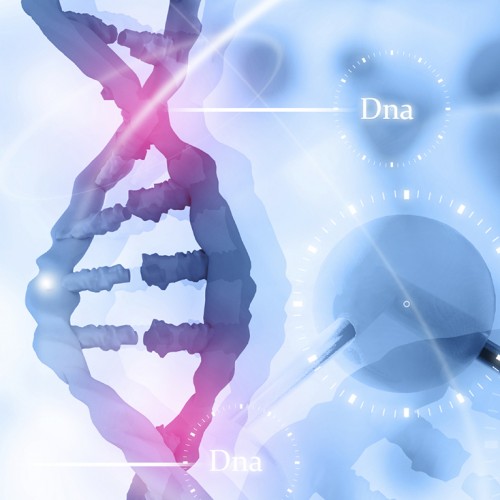
Empowering the Patient through Genetic Counseling
The groundbreaking discoveries relating to the double-helix structure of DNA by James Watson, Francis Crick, Maurice Wilkins, and Rosalind Franklin opened the door to a new era of scientific revelations that have impacted fields ranging from agriculture to forensics to medicine. Unlocking the secrets of DNA also provided insight into the origins of humankind. The thread of chromosomes that winds its way within all of us is one that has been passed down from generation to generation, and, in part determines who we are and what makes us different. Genetic testing has increasingly played an important role in diagnosing diseases, and, with it, the evolution of genetic counseling.
The Evolution of Genetic Counseling
The year was 1971. It was a historic moment—the first class of master’s degree genetic counselors had graduated from Sarah Lawrence College in Bronxville, NY. In the beginning, genetic counselors explained and interpreted tests for prospective parents and newborns for inherited diseases such as Tay-Sachs, sickle cell and cystic fibrosis. In time, cancer, Alzheimer’s disease, heart disease, and others have been added to the list.
Genetic counselors are translators and caregivers. With their understanding of both genomics and psychosocial counseling, they help people maneuver through the emotional rollercoaster of interpreting genetic test results and prenatal screening tools, to plotting a course of action.
“Genetic counselors are uniquely qualified to look at how genetics may play a role in medical conditions, as well as the probability of a patient being predisposed to other genetic diseases based on a number of factors such as family and health history,” states Professor Janice Berliner, director of the Master of Science in Genetic Counseling program at Bay Path. “While we are most concerned with the patient in front of us, we are also able to provide information on potential risks for other family members, which requires patience and empathy. We are there to empower patients to make the decisions that are right for them.”
As the menu of genetic tests expands, physicians and other practitioners find it challenging to stay abreast. In a recent Forbes magazine article, a survey of 488 doctors in New York state shows that only 14% said they felt equipped to interpret genetic test results. Although, this is a modest sample, it points out the need for genetic counselors on the healthcare team.
“It is very difficult for medical practitioners to have a deep understanding of every gene that is available for testing and the implications for the patient,” adds Berliner. “Genetic counselors are specialists who not only keep up to date, but can answer key questions such as: what does the detection of a harmful genetic variant mean? Which findings are urgent? Should I share this information with family members, and what is the best way to do that? How can I learn more about this condition? By answering as many of these questions as possible and referring our patients and families to support resources, we can provide relief and a level of comfort.”
Closing the Gap
Due in part to the skyrocketing popularity of online companies such as 23 and Me and Ancestry.com, as well as the vast number of genetic tests that are available to the medical community, the need for genetic counselors has never been greater.
In fact, the U.S. Bureau of Labor projects that demand for the profession will grow nearly 30 percent between 2016 and 2026.
According to Berliner, entrance into Bay Path’s program is extremely competitive: “We are one of 49 colleges and universities in North America that offer a master’s degree in genetic counseling, and we were the first, and now one of only two online programs in the country. Although students are required to come to campus for two weekends a year, all their didactic learning is done online and their clinical rotations can usually be arranged near where students live. These factors make the program incredibly convenient for students. And with the increasing use of remote genetic counseling for rural or underserved areas of our country, our students’ comfort with technology definitely gives them a leg up.”
What Does the Future Hold?
Technology will continue to have an impact on genetic testing, and software companies are already looking at artificial intelligence tools. It may be sooner rather than later that parents could leave the hospital with a complete genetic profile of their child. But no matter the advances or the possibilities, nothing can replace the high-touch relationship between patient and genetic counselor. After all, in the end, we are all human, and a caring heart and sympathetic ear can be the best medicine of all.
Need to know more about genetic counselors? Visit the National Society of Genetic Counselors website

